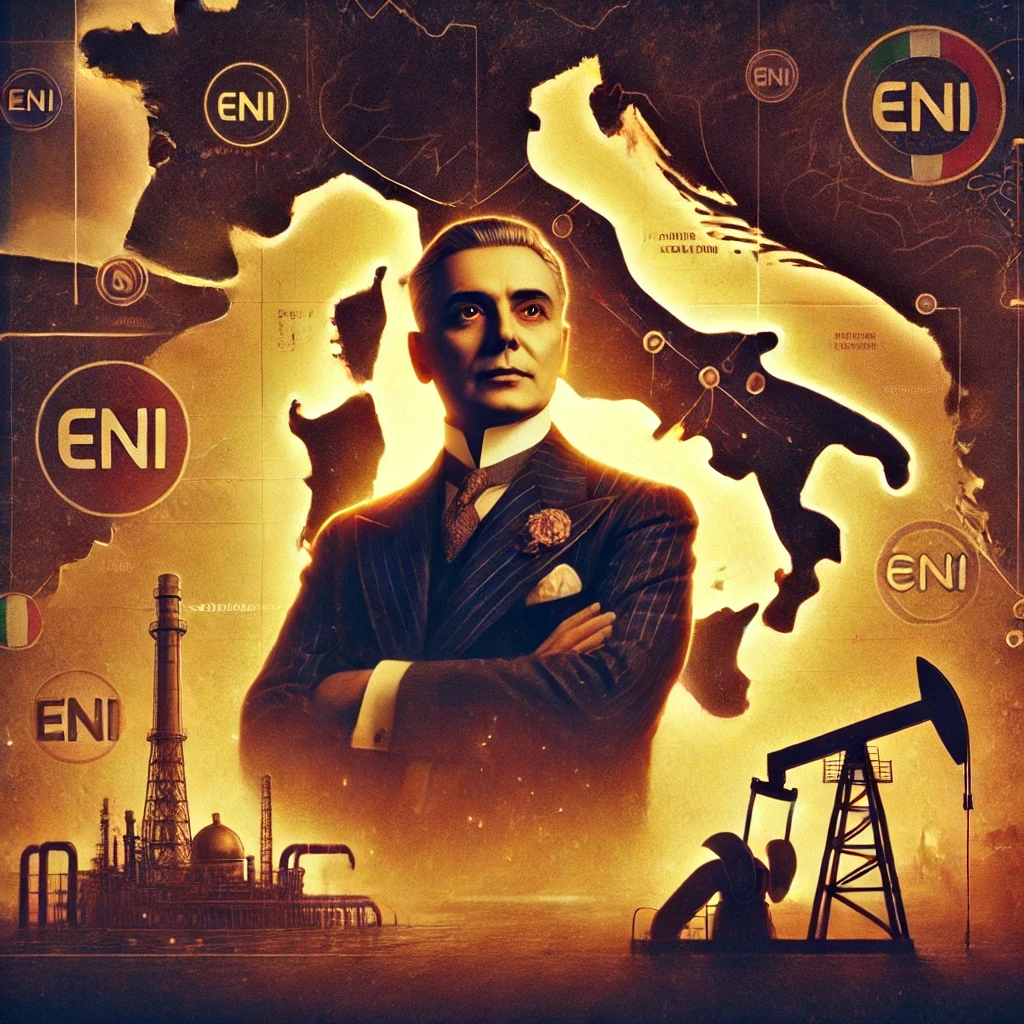The man who challenged the Seven Sisters
Enrico Mattei

Enrico Mattei, the visionary who challenged the oil giants and changed the global energy landscape, tried for the first time to establish balanced energy relations with the emerging countries of the Global South. His revolutionary ideas earned him many enemies and ultimately cost him his life - Image generated with AI
One October evening in 1962, Enrico Mattei, the founder and chairman of ENI, died in a mysterious plane crash not far from Milan. Mattei was returning home after a working visit to Sicily, and the sabotage hypothesis was soon put forward. The sabotage was probably motivated by the revolutionary corporate and geopolitical policies proposed by Mattei's ENI, which had led him to build a new energy business model, but at the same time had earned him numerous enemies.
Enrico Mattei was a man of extraordinary acumen and embodied the Italian will to rebuild their country from the rubble of World War II. After serving in the anti-fascist resistance, he decided to work as a manager in the public sector and founded ENI (Ente Nazionale Idrocarburi), building a new player in the global energy market and challenging the monopoly of the Anglo-American oil companies, known as the Seven Sisters. His strategies aimed to create equal relations with producing countries, especially in the Middle East and Africa, and to replace the classic unfair agreements with mutually beneficial ones. Mattei proposed agreements to the producing countries that allowed him to keep a share of the profits up to 75 per cent, leaving ENI with 25 per cent: an offer considered revolutionary for the time.
In this vision, Mattei established himself as an ally of emerging countries, especially those engaged in anti-colonial struggles to free themselves from their former European colonisers. He made agreements with countries such as Iran and supported decolonisation movements, such as the Algerian one against France. With this strategy, it managed to force its way into the world energy market from scratch, but antagonised many governments and intelligence apparatuses. At the time, the global order was built on the exploitation of the resources of emerging countries by rich western countries and Mattei challenged this dogma, posing a risk to the established order.
His death marked not only the end of an extraordinary mind, but also a turning point in Italian energy history.
Nico Perrone. Enrico Mattei. Bologna: Il Mulino, 2012.
Sito: Massimiliano Bonne. “I Colloqui Tra l’Unione Sovietica e l’industria Energetica Italiana Dal 1959 al 1961: La Strategia Di Enrico Mattei e i Suoi Risvolti Sulla Politica Internazionale.” Ventunesimo Secolo 10, no. 24 (2011): 159–97. jstor.com (consultato novembre 2024)
2025-08-22
Francesco Toniatti
